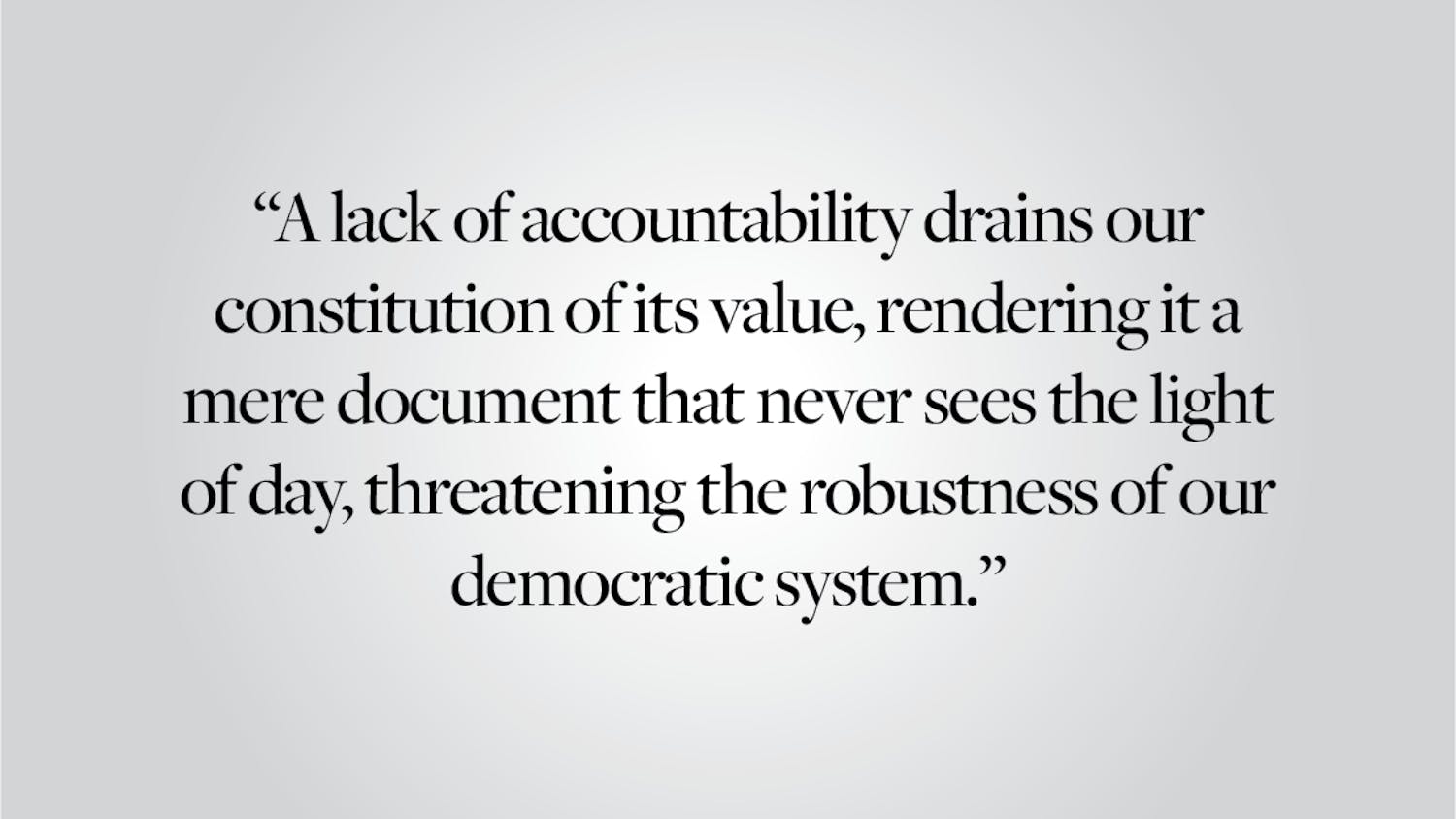Drake is the hottest rapper in the game right now. This is a fact.
In 2015, he released two number-one mixtapes, launched a radio show on Apple Music, shot to the top of the charts with “Hotline Bling,” recorded killer guest verses on “Blessings,” “Where Ya At,” “R.I.C.O.” and “100” and single-handedly destroyed Meek Mill’s reputation with a Grammy-nominated diss track that became a staple at clubs everywhere. All of this in a year when he didn’t even drop a proper album. 2015 was a landmark year for Drizzy in every category, from extended commercial success to a massive boost in reputation.
Prior to 2015, he was the rapper you listened to if you wanted to cry and think about your ex. He wasn’t raised by the streets of Atlanta or Compton; he grew up as a child acting star in Toronto. “Soft” and Drake went together like Future and lean. But in 2015, something changed.
If “Take Care” and “Nothing Was the Same” were Drake at his most soulful, “If You’re Reading This It’s Too Late” was Drake with an edge. The sound he had so carefully cultivated with his early mixtapes and first three albums had changed. The man who once called himself Heartbreak Drake became the 6 God. He went from, “You could have my heart, or we could share it like the last slice” (“Best I Ever Had”) to, “I pull the knife out my back and cut they throat with it” (“You and The 6”). “If You’re Reading This” was guarded, aggressive and lonely. And it was so, so good. As Rolling Stone Magazine declared in its review, “For the first time in his career, Drake doesn’t sound like he wants to be remembered as one of the greats. This time, he just is.”
Drizzy’s ascent to the throne of hip hop has not come without controversy and criticism. Contempt for Drake can be found everywhere, from music blogs to legions of rap fans unhappy under his new reign. Much of it revolves around the belief that he uses up-and-coming artists to stay relevant without properly crediting them or contributing to their future success.
There are allegations that he ripped the beat off of D.R.A.M.’s “Cha Cha” for “Hotline Bling” and concerns that he has remixed popular songs by smaller artists simply to exploit their momentum and keep himself on top. Well-respected rapper Earl Sweatshirt echoes the sentiments of many when he tweets, “Drake can be a bit of a vulture on young (rappers).” In an article for Vulture, Lindsay Zoladz describes this phenomenon by comparing Drake to “a high-school queen bee who begrudgingly befriends the new ‘It’ girl, just so down the line she can claim credit for her sudden popularity.”
But they’re all wrong. And here’s why.
Making music — and indeed, any creative process — depends on artists interacting and appreciating work from others, which inevitably influences them and contributes to their own work. This is abundantly clear in hip hop. We wouldn’t have Kendrick Lamar without the groundwork laid by legends such as N.W.A. and Tupac. We wouldn’t have Young Thug, Rich Homie Quan and Future if Lil Wayne hadn’t popularized rap with auto-tune. The list goes on and on.
Drake is no different. When he hears something he likes, he incorporates it into his sound, just as many rappers have done before him. Though there was a massive uproar over whether Drake ripped “Hotline Bling” off of “Cha Cha,” what most people don’t realize is that both artists seemingly derived their beats from an older song, titled “Why Can’t We Live Together,” by Timmy Thomas. Furthermore, while Timmy Thomas is credited as a songwriter on Hotline Bling, D.R.A.M. makes no mention of this beat in his song credits. Thus, it is not surprising that both songs sound alike. But hip hop is all the better for it, and both songs have achieved significant commercial success. Such is creativity in music: It thrives when others take existing ideas and add their own unique twists.
When arguing over remixes, the case for Drake becomes even more solid. His collaborations with other artists have increased the quality of the original songs while increasing the popularity of both his own work and the original artist’s. His verses on tracks such as “Versace,” “My Way” and “Tuesday” turned them from modest hits to absolute essentials on party playlists. If you say that you knew who ILoveMakonnen was before the “Tuesday” remix, you’re almost certainly lying.
Critics will say that Drake is trying to stay hip and trendy by exploiting songs that are already popular, but if you look around, he’s not the only one jumping on remixes. Nicki Minaj released a “No Flex Zone” remix after Rae Sremmurd rose to popularity, Rick Ross released a series of remixes to promote his newest album that included verses over “Hello,” “Jumpman” and “Can’t Feel My Face” and Lil Wayne has two entire mixtapes that consist of him rapping and singing over popular songs. But no one complains about these artists because their remixes never come close to rivaling the original in popularity. Drake’s remixes, on the other hand, often eclipse the original, which is the where the majority of the criticism stems from. But this is not Drake’s fault. His work on other musicians’ tracks and beats should be celebrated, not condemned. Music is at its best when artists hone and refine work done by those before them, pushing and inspiring each other to be better.
Being the most popular rapper in the industry puts a target on one’s back. The greater the success, the harsher the spotlight. But to those who would try to drag Drake’s name through the mud as he continues his run into the history books, I say this: Music relies on collaboration and flourishes in an environment of open creativity. To say that Drake is a thief is misplaced. He’s not perfect (see: lawsuit over guest verse in “Who Do You Love”), but he isn’t a villain either. He may be a flawed artist, but he is a great one. And instead of debating where he got the beat from “Hotline Bling,” maybe we should just enjoy the music.
Andrew Novoa ’19 can be reached at andrew_novoa@brown.edu.
Please send responses to this opinion to letters@browndailyherald.com and other op-eds to opinions@browndailyherald.com.




